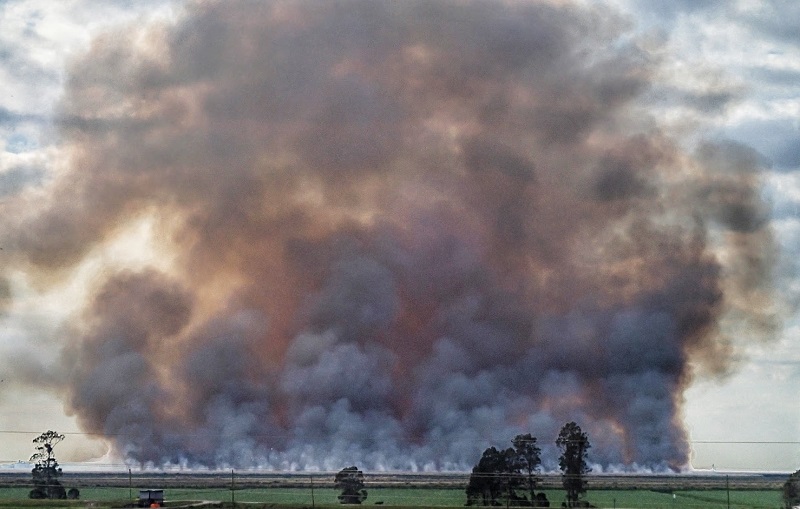Investigation shows how Big Sugar money influences local elections and beyond
Investigation shows how Big Sugar money influences local elections and beyond

In a blockbuster Feb. 3 story, the Palm Beach Post and ProPublica laid out exactly how the sugar industry manages to capture local politicians, and indeed local communities, which then helps them stave off change at the state level – and keep the profits rolling.
In the piece, the reporters detailed how Steve Messam, a candidate for City Council in Belle Glade who’d spoken against the industry practice of pre-harvest burning – which inflicts health problems on nearby residents – was targeted by Big Sugar’s money and political clout.
First, Big Sugar money went to Messam’s opponent, Joaquin Almazan. Then, Big Sugar money helped pay for attack ad campaigns against Messam.
But while the industry in many cases contributed directly to their preferred candidate, the voter guides and attack ads were often funded by political action committees, or PACs – and there’s rarely a clear, straight line between sugar money and those attacks.
The reporters do a masterful job of detailing how industry money goes to PACs like “Glades Together,” which got money from another PAC called “Liberate Florida,” which in turn got it money from a variety of statewide PACs, including the Florida Prosperity Fund – which gets a good chunk of money from U.S. Sugar, among other interests.
It’s dark money insulated by layers of plausible deniability. And it’s effective: by helping elect sugar-friendly local leaders, those leaders can then troop up to Tallahassee and tell state legislators that the interests of their community are aligned with the interests of Big Sugar.
And that, reported the Post/ProPublica, was a key factor in Big Sugar’s successful campaign last year to get “particle emissions” – think sugar cane burning – added to the list of protected farming practices, effectively preventing Glades residents harmed by the smoke and “black snow” from the burning fields from suing.
Indeed, on the basis of this “local support” for Big Sugar – paid for by Big Sugar – numerous legislators dropped their opposition to the measure, which subsequently sailed through the Legislature and was signed into law by Gov. Ron DeSantis.
For Big Sugar, it was Mission Accomplished. And the same dynamic is likely to ensure a proposal in the Legislature this year to strip “particle emissions” from the list of protected farming practices will go nowhere.
This is a textbook advantage of how big money from big players like Big Sugarmakes a big difference in local politics and beyond.
Call it what you will. But don’t call it “democracy.”


